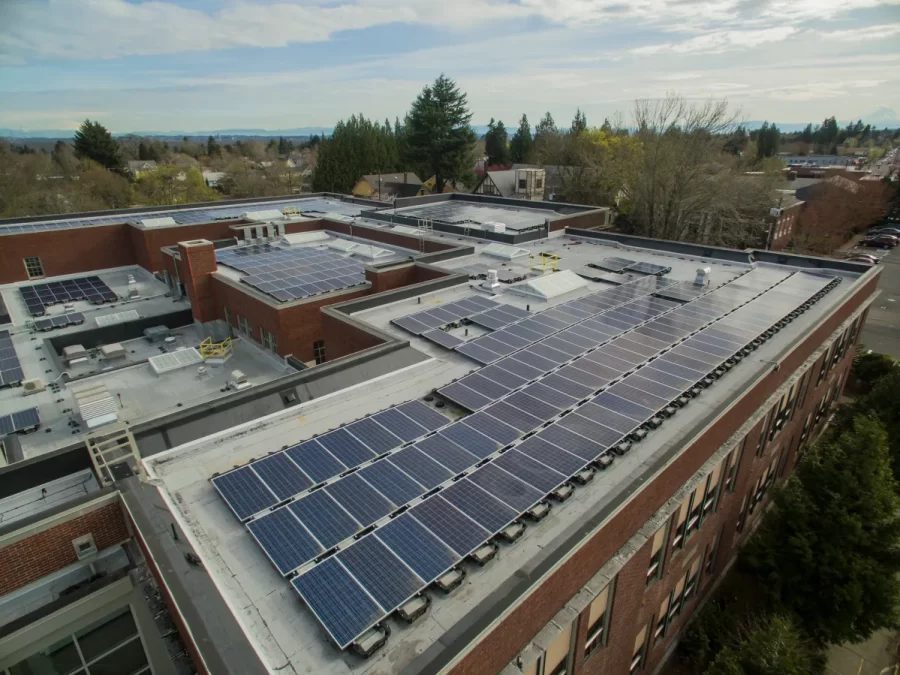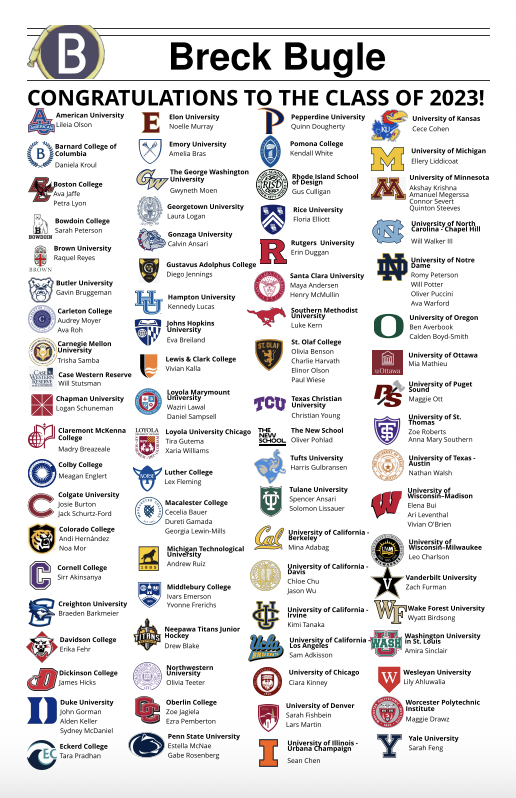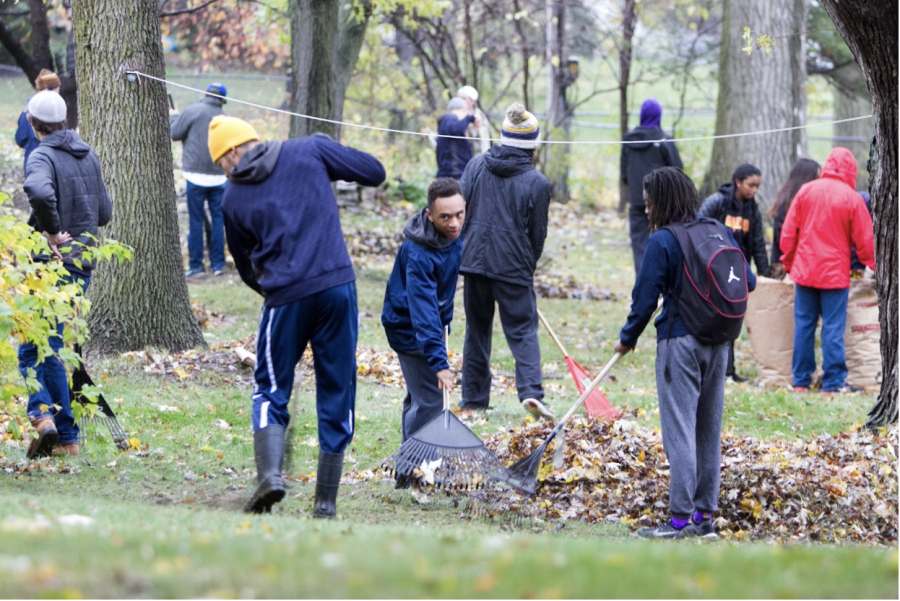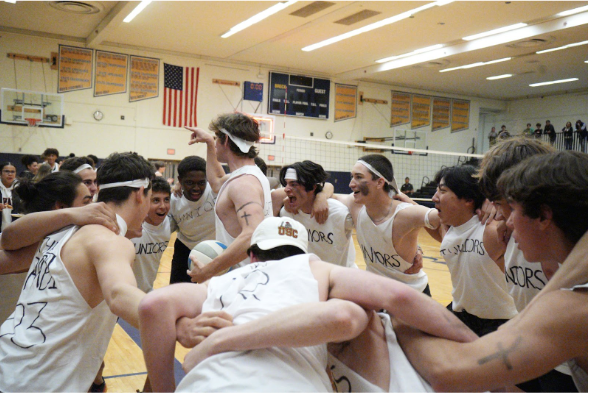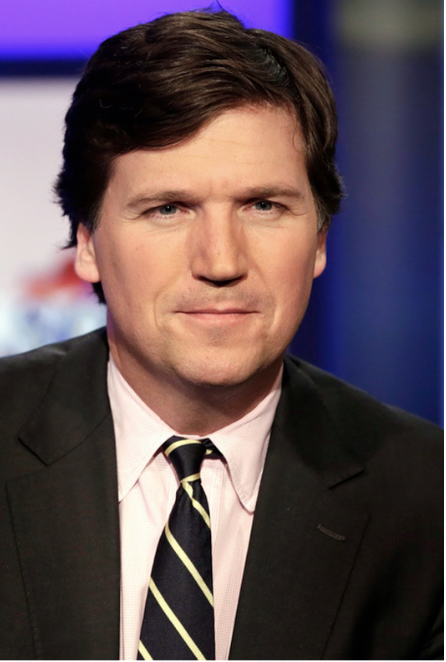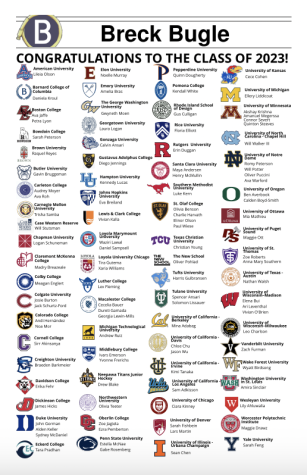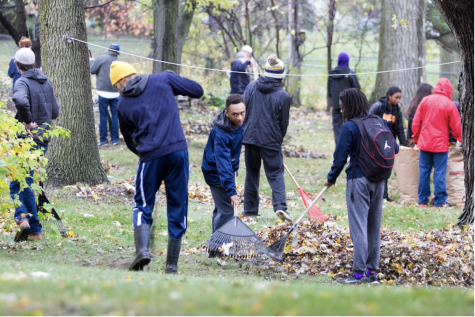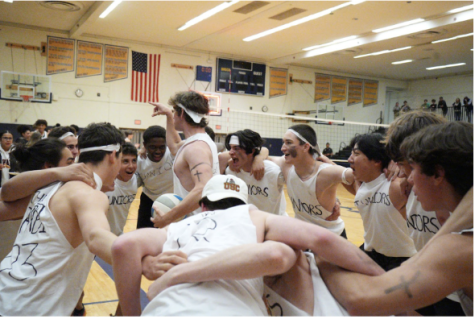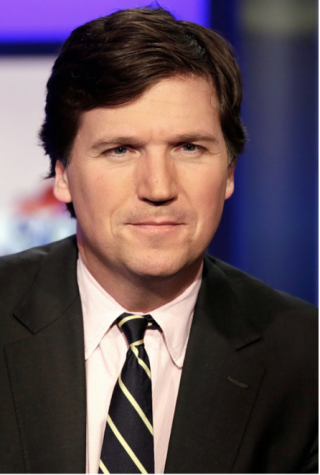Behind the Research Opportunities at Breck
Are you interested in history or STEM? Do you like to research? Do you want to give your college application a competitive edge over everyone else’s? If you answered yes to any of the prior questions, one of these Breck programs might be for you!
ASR: Advanced Science Research is an amazing opportunity for those interested in pursuing research in any scientific field in college. It helps build real lab experience and learn how to write a full research paper. Students interested in ASR fill out an application in early October to demonstrate their commitment to the class for the next school year. If students get accepted into the program, they will work with Dr. Kragtorp on finding a mentor to work with over the Summer and choose one topic to focus on research. The class does require students to spend 300 hours of time in the summer working on their projects in order to start the process of writing their research paper when the school year starts, but the effort put in produces amazing results! Multiple students in the program have won awards at regional science fairs and their projects have gone on to be judged at the state level. The students currently in the program are actually going to start participating in these fairs soon! As for the workload, it may sound daunting, but multiple students who are going through or have gone through the program reported that while it did involve a lot of hard work, it was one of the best things they got to experience at Breck and most juniors in the program said they were planning on doing the class again the following year! ASR is limited to rising juniors and seniors, and the application period is already over for this year, but if you are going to be a rising junior or senior for the 23-24 school year and this program sounds like a fit for you, definitely consider applying!
AHR: Advanced History Research is a program aimed at students interested in history beyond classroom learning. This program is led by Ms. Pierson and Mr. Grossman and typically lasts around two years. The research starts with a topic of interest, commonly revolving around the history of Minnesota. In the first semester, students will also interview individuals or visit historical places to gain a better understanding of their topic. In addition, college-like seminars are held to investigate and analyze a topic in depth. During the second semester, a specific point is selected from their topic to go further into, along with collecting the information in the months of June and July. It’s also expected that students apply to the Minnesota Scholars of Distinction. (A project that recognizes distinguished achievement by motivated independent students in not only history, but also science, mathematics, and the performing arts.) Advanced History Research is a great opportunity to gain experience in research, a crucial skill needed for the future.
AMR: Advanced Math Research is led by Ms. Berdine, and is offered to students with interests in social justice and community engagement. It’s a great way to give back to your community through informative research. The purpose of AMR is to apply mathematical concepts to real-world problems, learn how to research with people, organizations, and communities, and gain a better understanding of how things happen through the lens of mathematics. Students typically work in groups, collaborating with local nonprofit organizations to find areas of interest. For example, Nina Skemp (‘22) and Ellie Pirtle (‘22), based their project on the effects of emotional and social support for cancer patients, and the progress attained from these sessions. After determining a topic, groups then begin to collect data and outcomes. Students are then required to present their findings throughout the course in multiple ways, including at the school research symposium. If interested, students can also present their findings to the community along with school-based audiences. AMR is a fun way to not only improve your research skills but to learn about the math behind real-world problems.





















